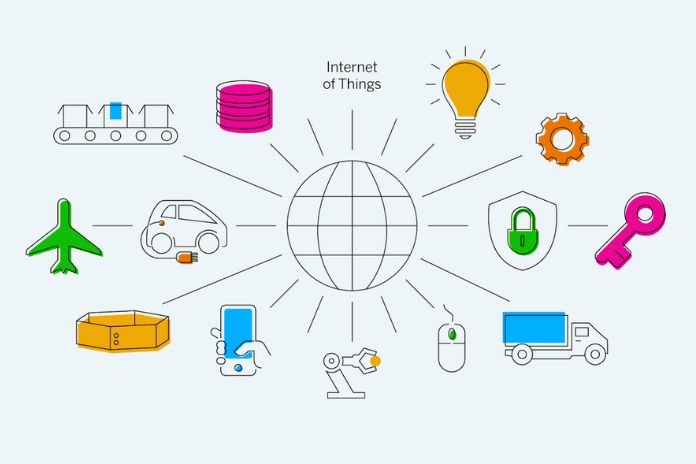The connection between machines and equipment allows productivity improvements within companies.
If you know what IoT ( Internet of Things) is, you have probably heard of this tool as a possibility to connect everyday objects to the Internet: refrigerators, microwaves, and washing machines. From a domestic perspective, it is already a reality and can also do a lot for companies.
The connection between things will optimize and automate processes within companies in the most diverse sectors. This ranges from smart watches, capable of monitoring the heart rate of their users through apps, to washing machines with access to the mobile network, which, if they break, can “notify” a maintenance center via the Internet.
And why are companies turning their efforts to IoT? The answer lies in the market: as they look for ways to stay ahead of their competitors, it is inevitable to face digital transformation, of which IoT is one of the pillars with the highest growth trend. The segments in which IoT can bring positive results are the most diverse: agribusiness, homes, cars, cities, and energy networks. In industry, the growth potential of IoT is precisely due to the need to innovate within organizations.
Industry analysis indicates that IoT growth will be exponential over the next 5 to 10 years, accelerating the automation of home appliances, electrical grids, agriculture, traffic control, and automobiles. We could put this sentence together in the paragraph above that talks about these same segments. I thought it looks like it’s repeating, you know?
What Is Already A Reality?
Some examples of IoT applications in companies are emerging in the market. Airplane manufacturers, for example, already use the “dark production line” feature. Part of the vehicles are produced with robotic mechanical arms, in which sensors are installed. As the robots produce the parts, they generate data captured by the sensors. An engineer located in another unit of the company can follow this information without having to go to production.
Another example is industries that carry out logistics monitoring also with IoT connection. The trucks’ movement control is performed by radiofrequency sensors, which allows knowing exactly when a truck should arrive at the production line and travel data, such as speed during displacement.
For this to be increasingly present in the daily lives of organizations, it is necessary to advance in digital transformation. This way, companies can walk the path strategically, which makes business sense and brings positive results.
Data Analytics Can Benefit Your Company
Quick responses to market demands make companies need to be agile in decision making. In this scenario, information becomes increasingly valuable in the strategy of any business. What are customers looking for? What are your demands for products and services? To answer these questions, having access to a gigantic database is not enough. What makes the difference is knowing how to read and analyze the data.
When a company launches a new application or solution, it can use tools to monitor how customers use this feature. And this goes for all segments, from service providers to industries. In a factory, for example, where there is no direct contact with the end user, it is possible to apply the technology in other ways. Sensors can be installed in the different stages of production, reporting information such as temperature and product quality. From this, the company can make decisions to manage its resources better and avoid waste.
Retail retailers can analyze consumer online behavior data to improve their e-commerce sales strategies. In agribusiness, a tractor manufacturer can install sensors on its equipment, for example, to monitor soil temperature and use this information to increase productivity.
Social Networks: An Extensive Database
In addition to the information provided by the companies’ platforms, social networks are another fundamental tool for strategic planning. Research by We Are Social shows that about 40% of the world’s population is on social media. Three billion people are moving online; an extensive database is available to organizations. “They are an essential source of information for the company because they allow quick feedback to understand the consumer
Also Read: The Security Of The Internet Of Things

